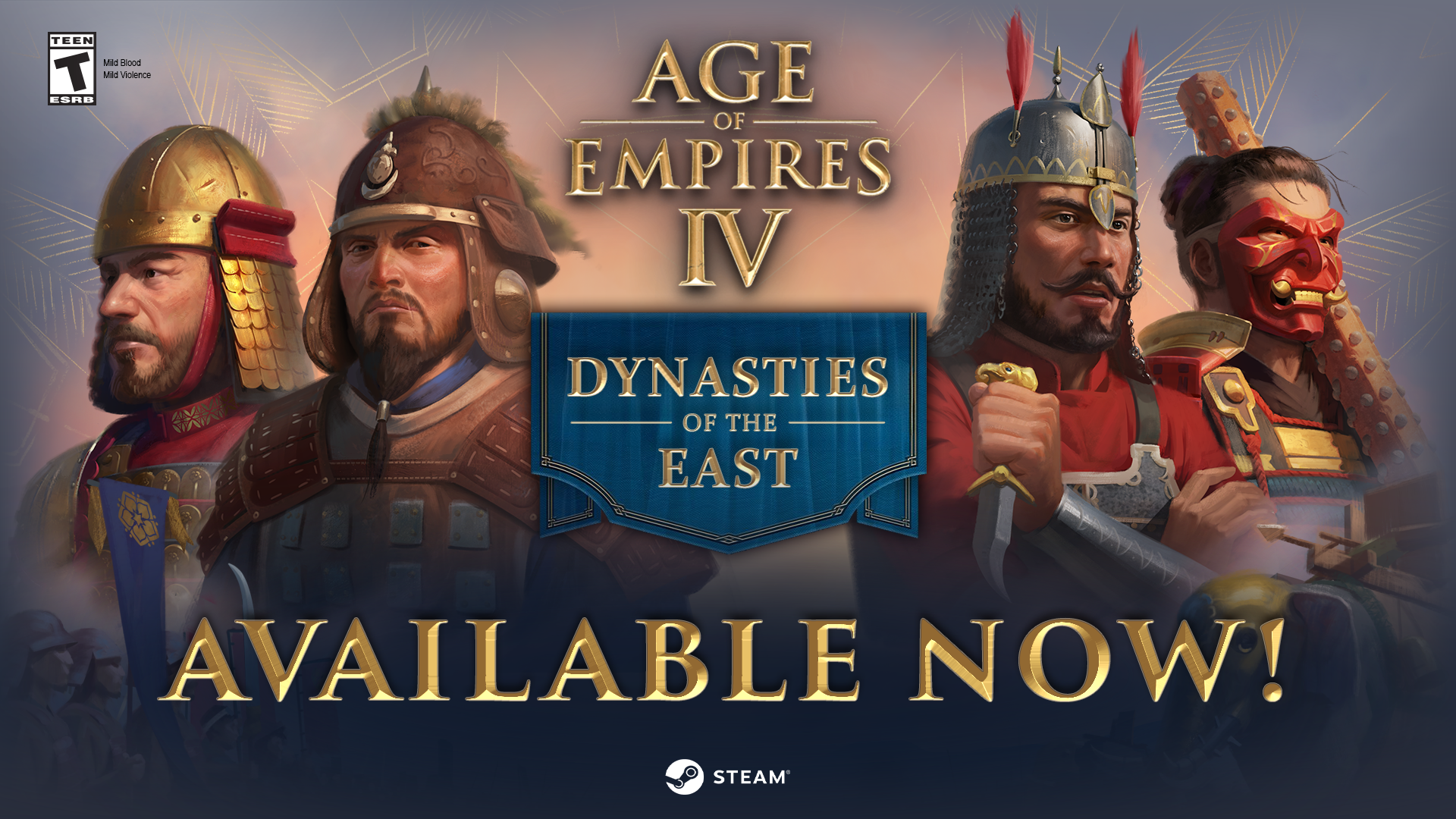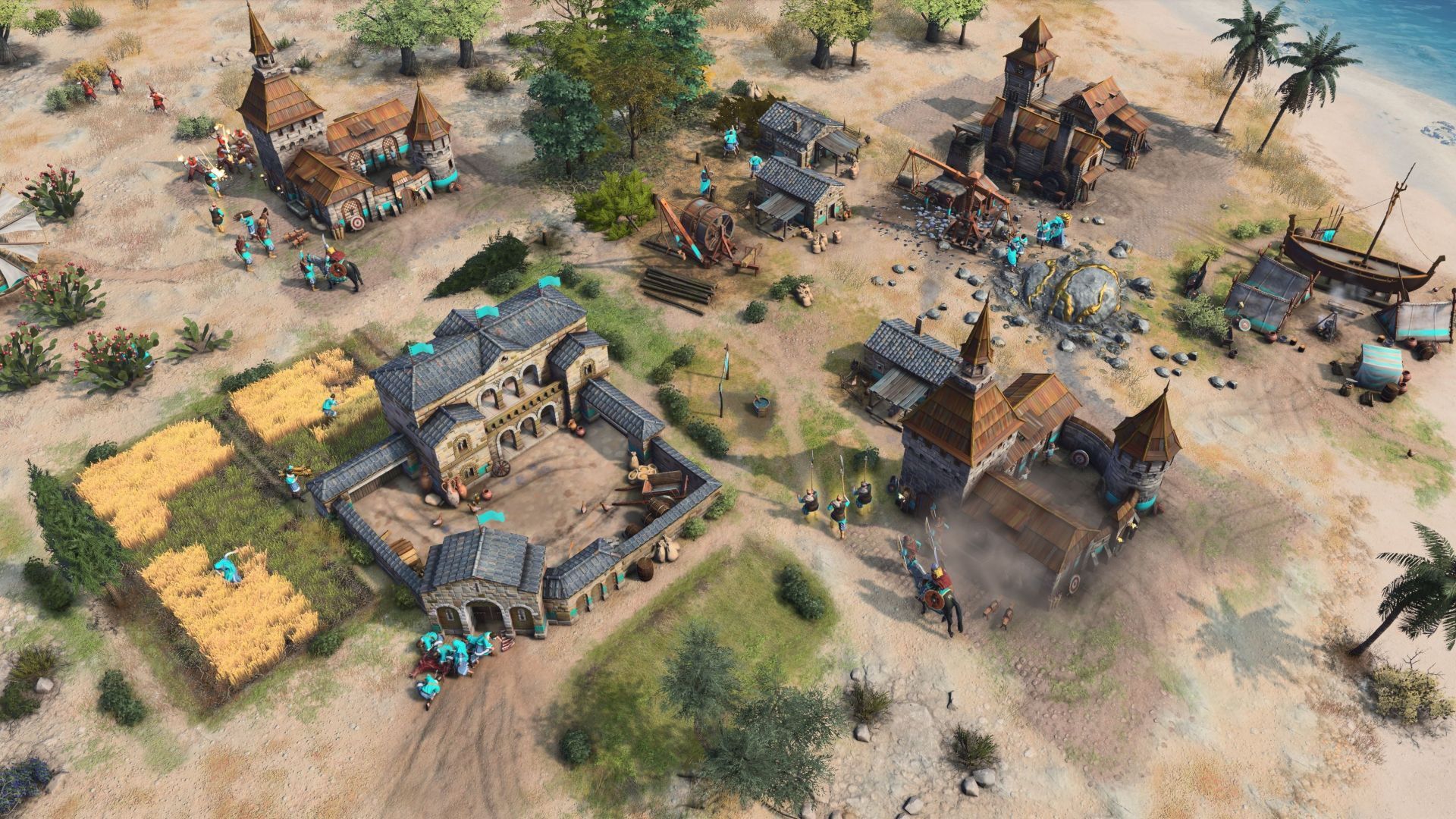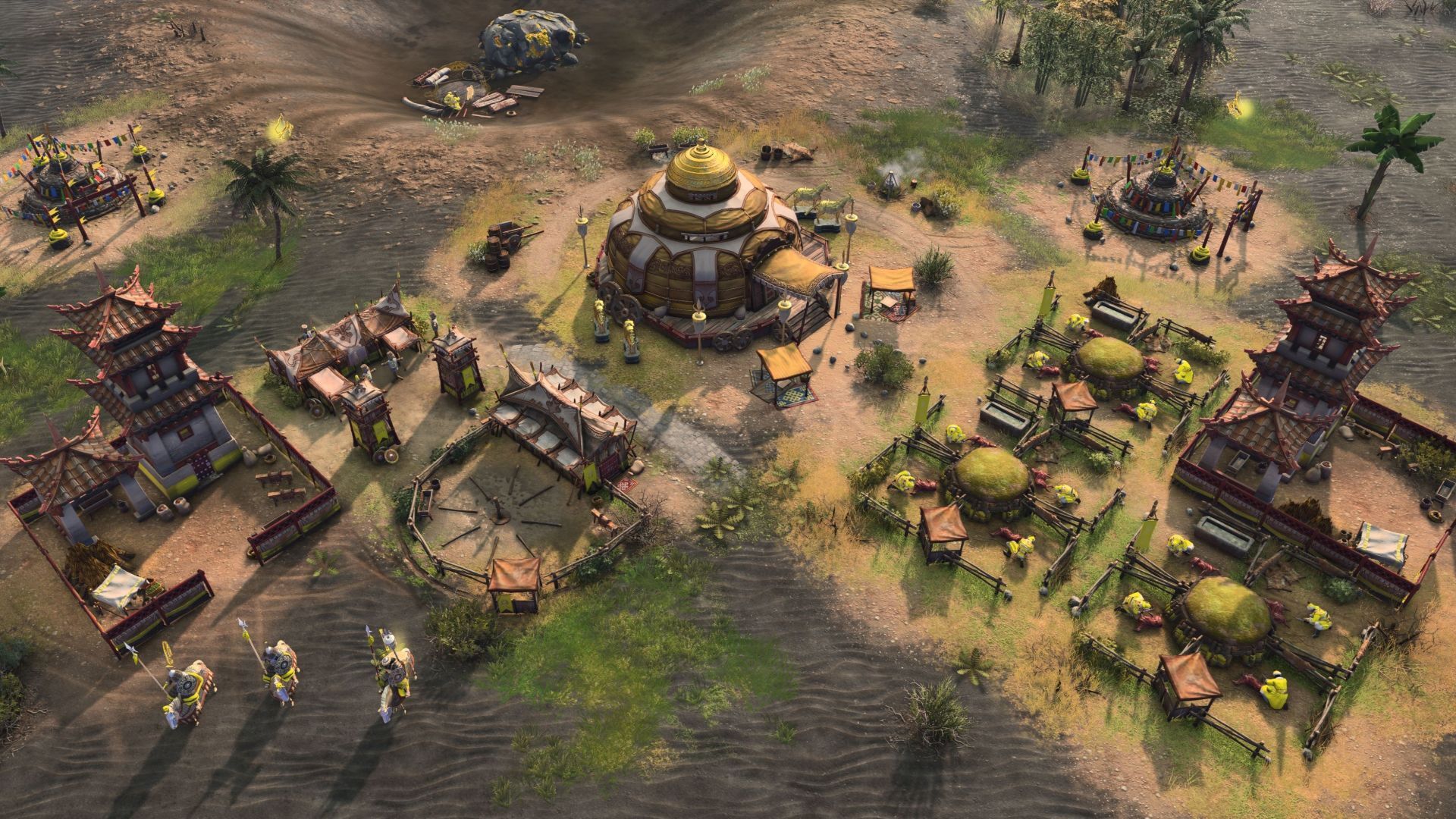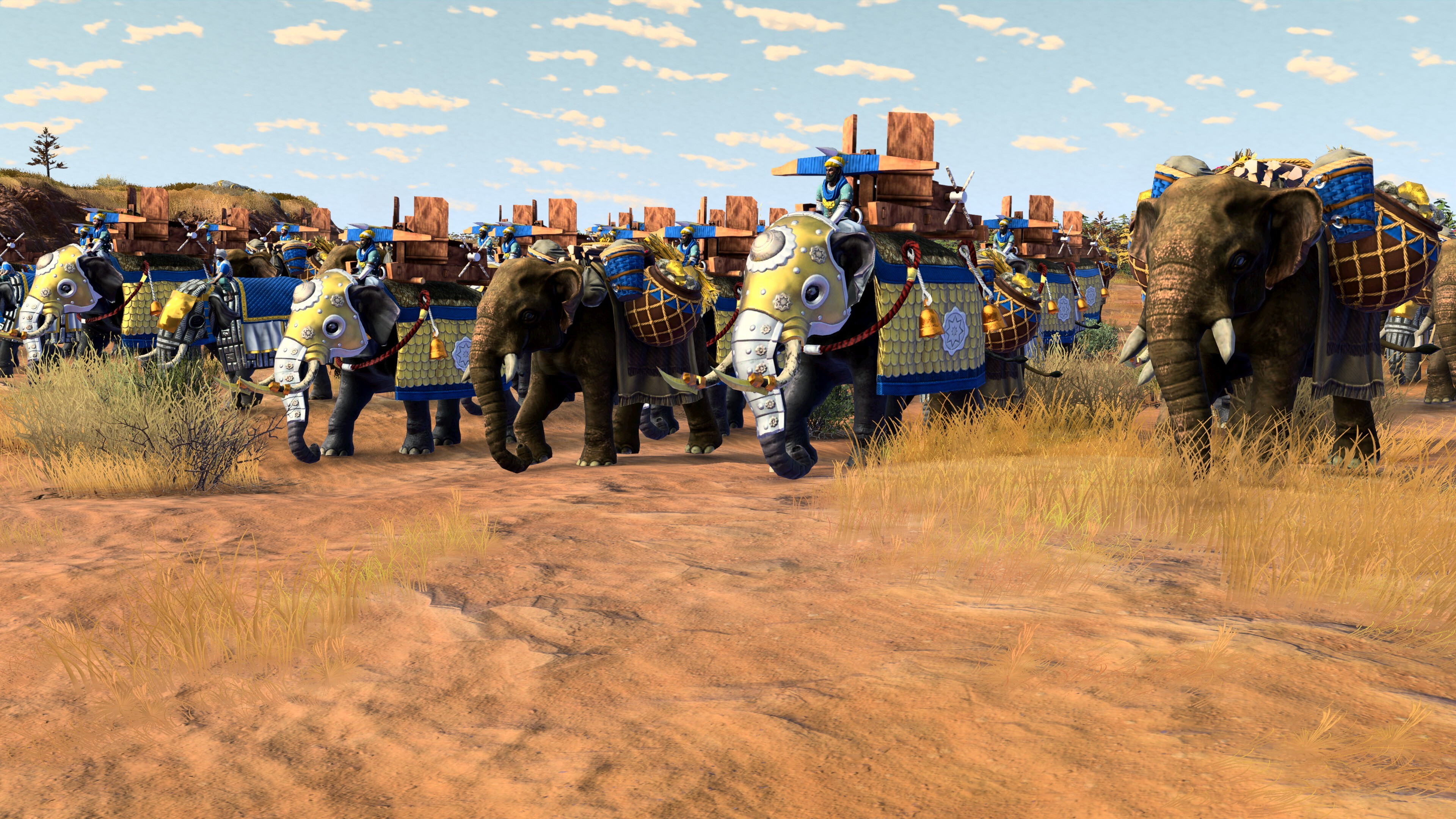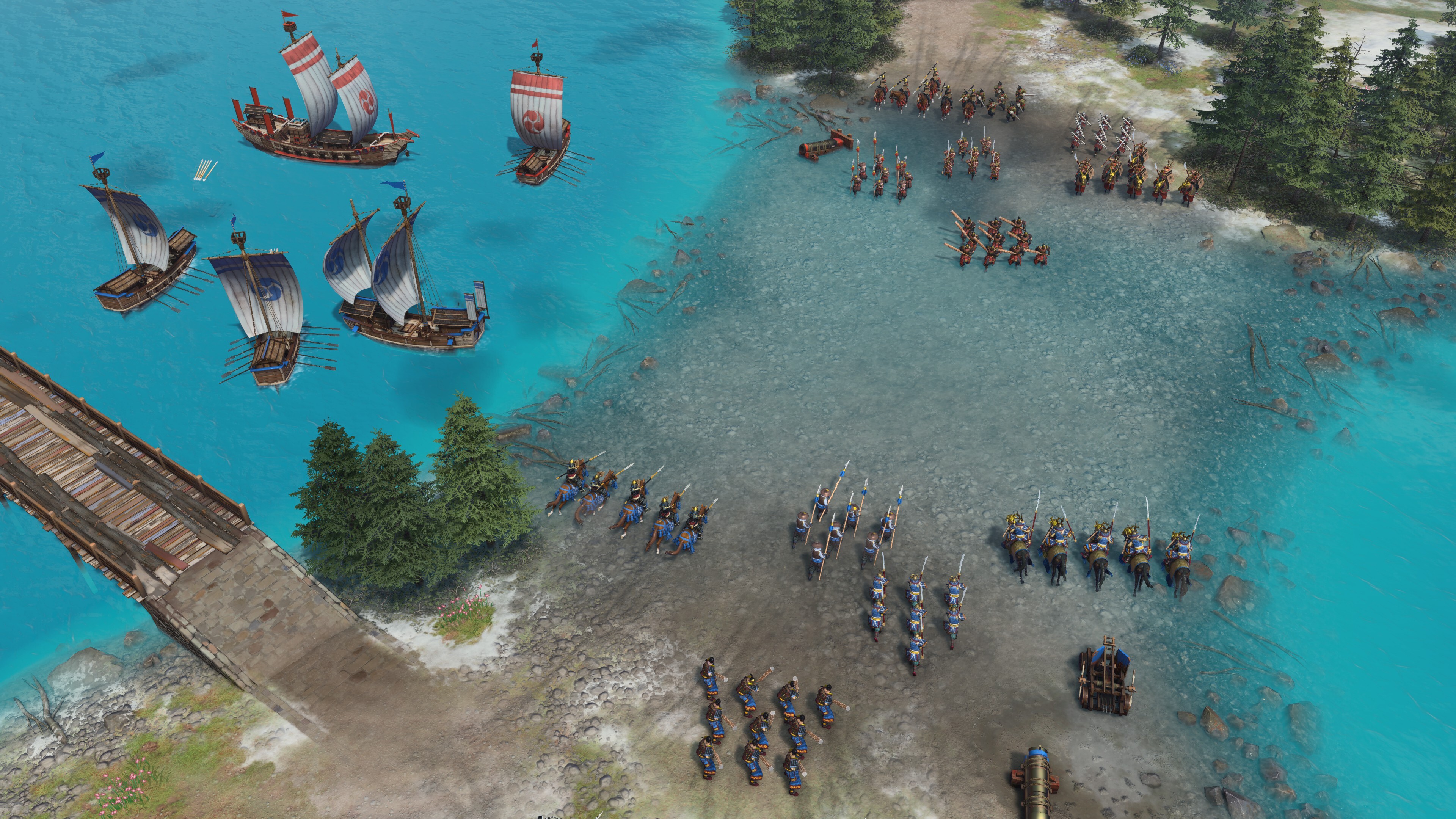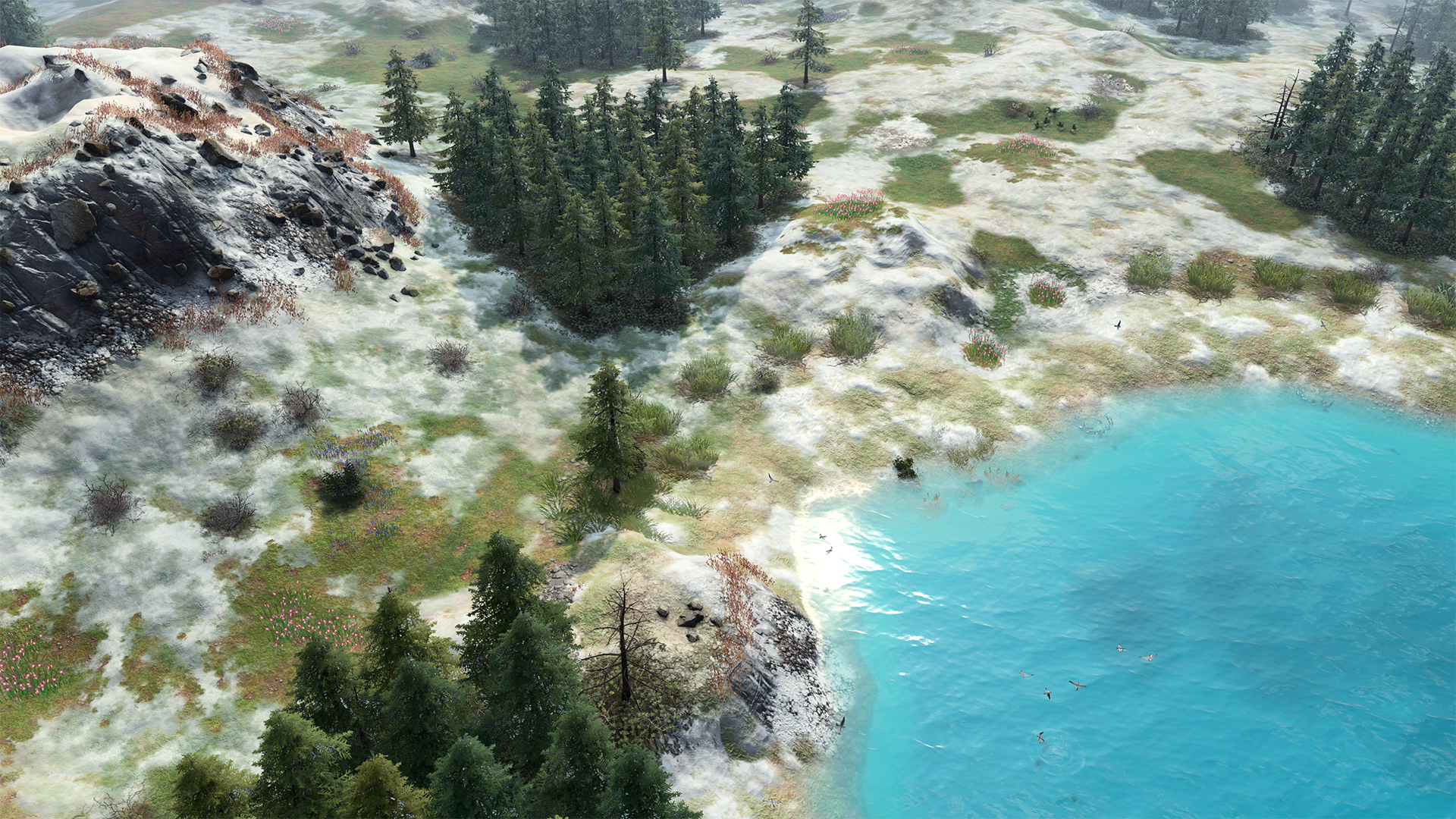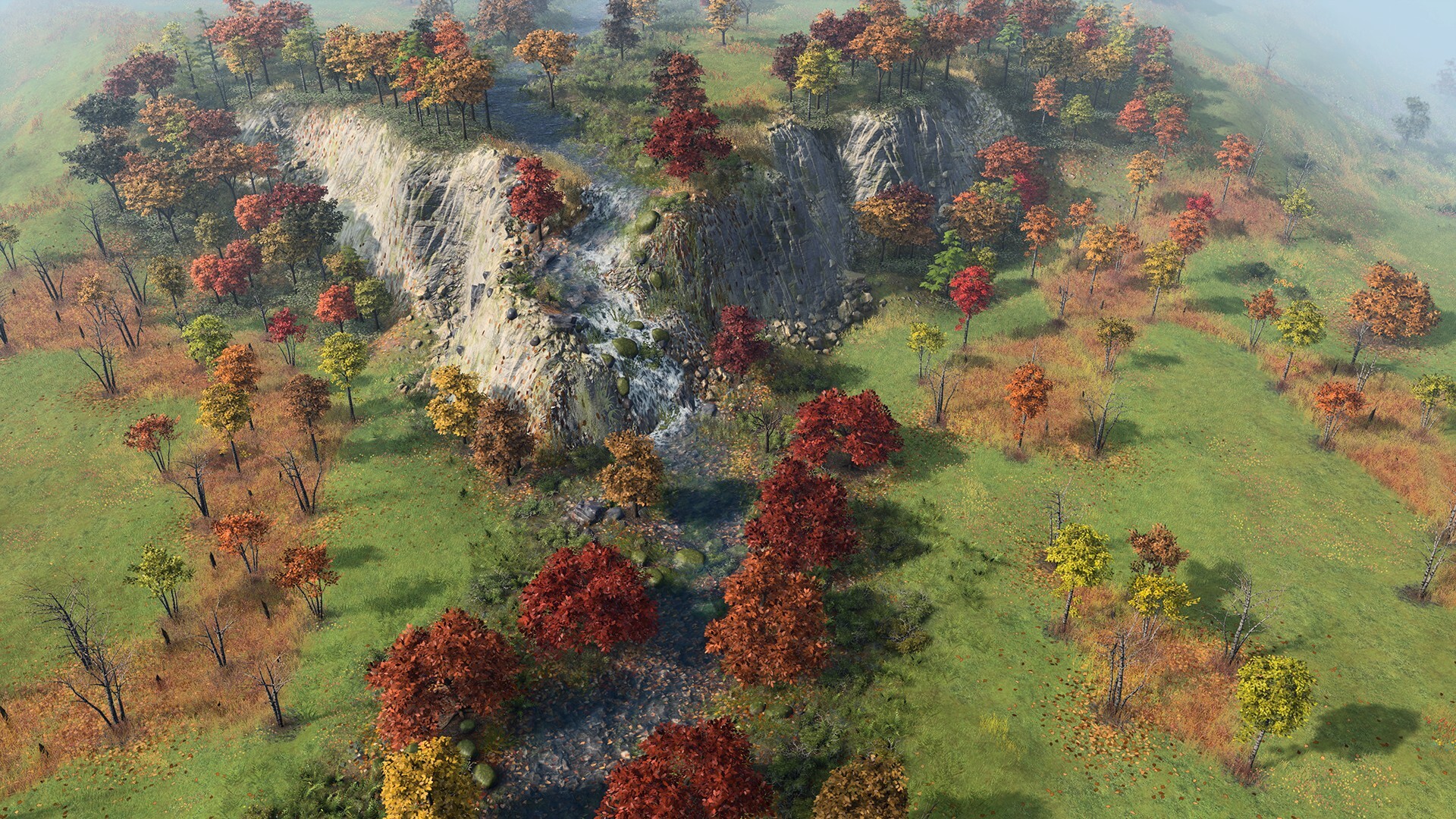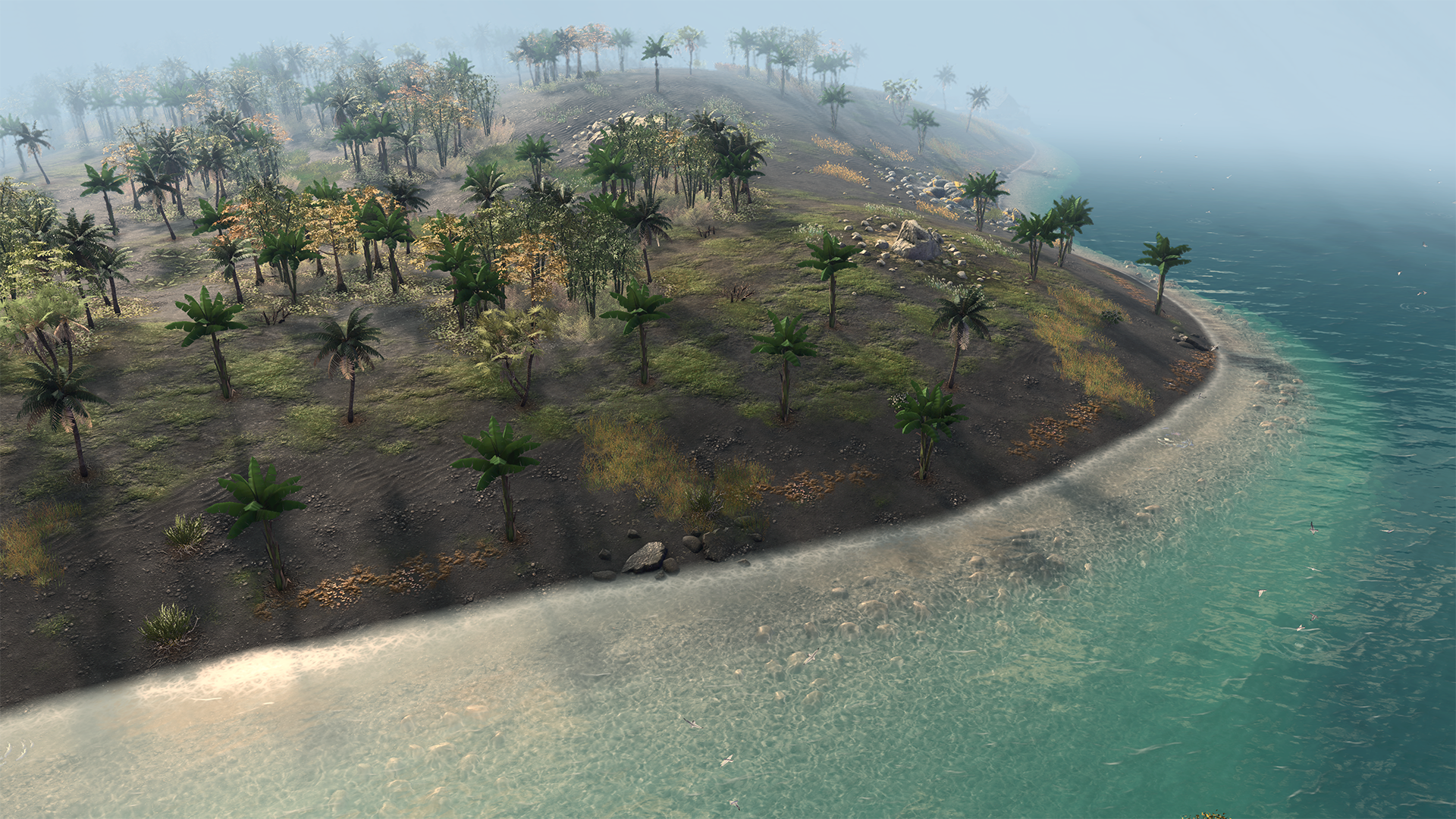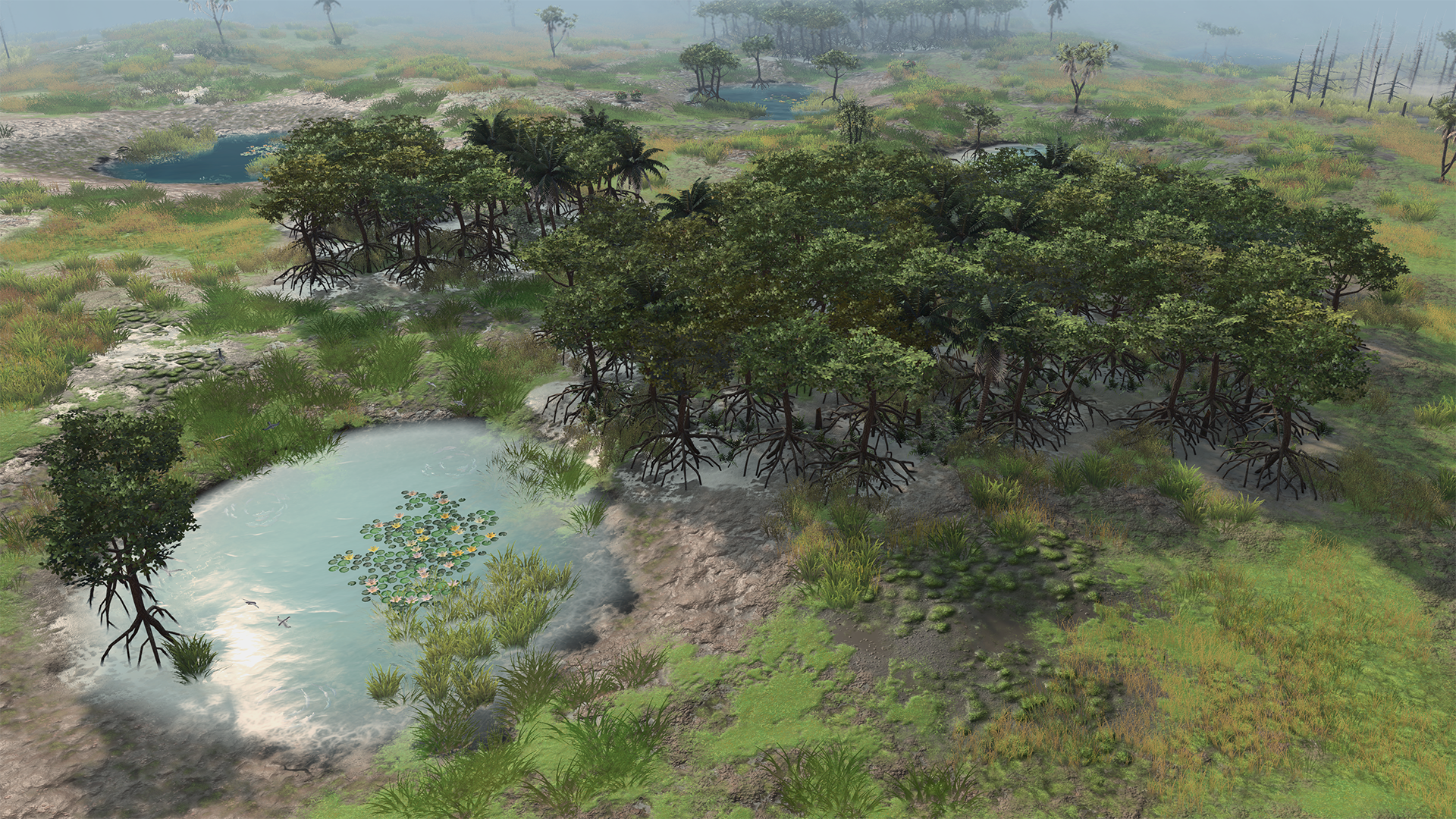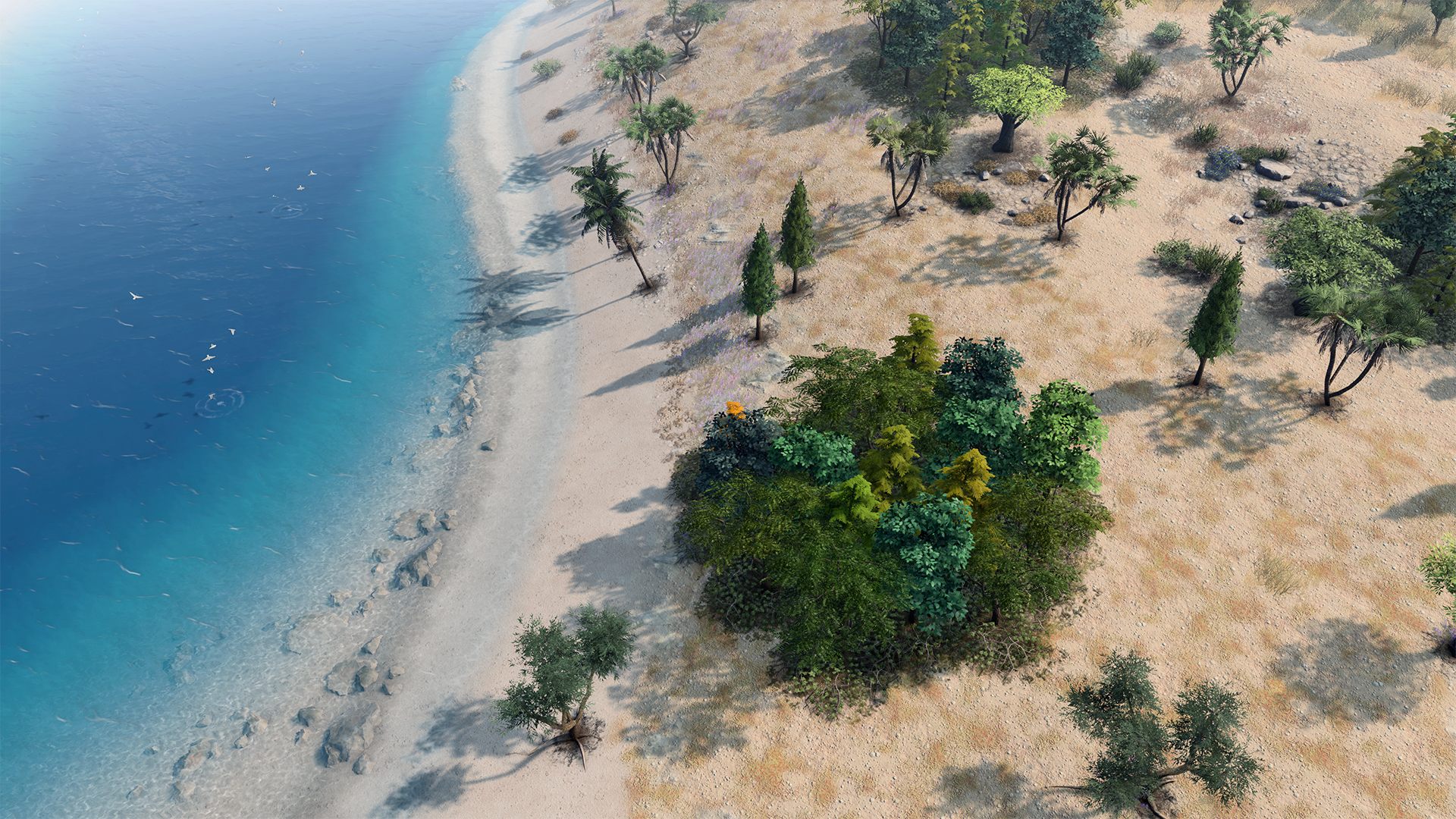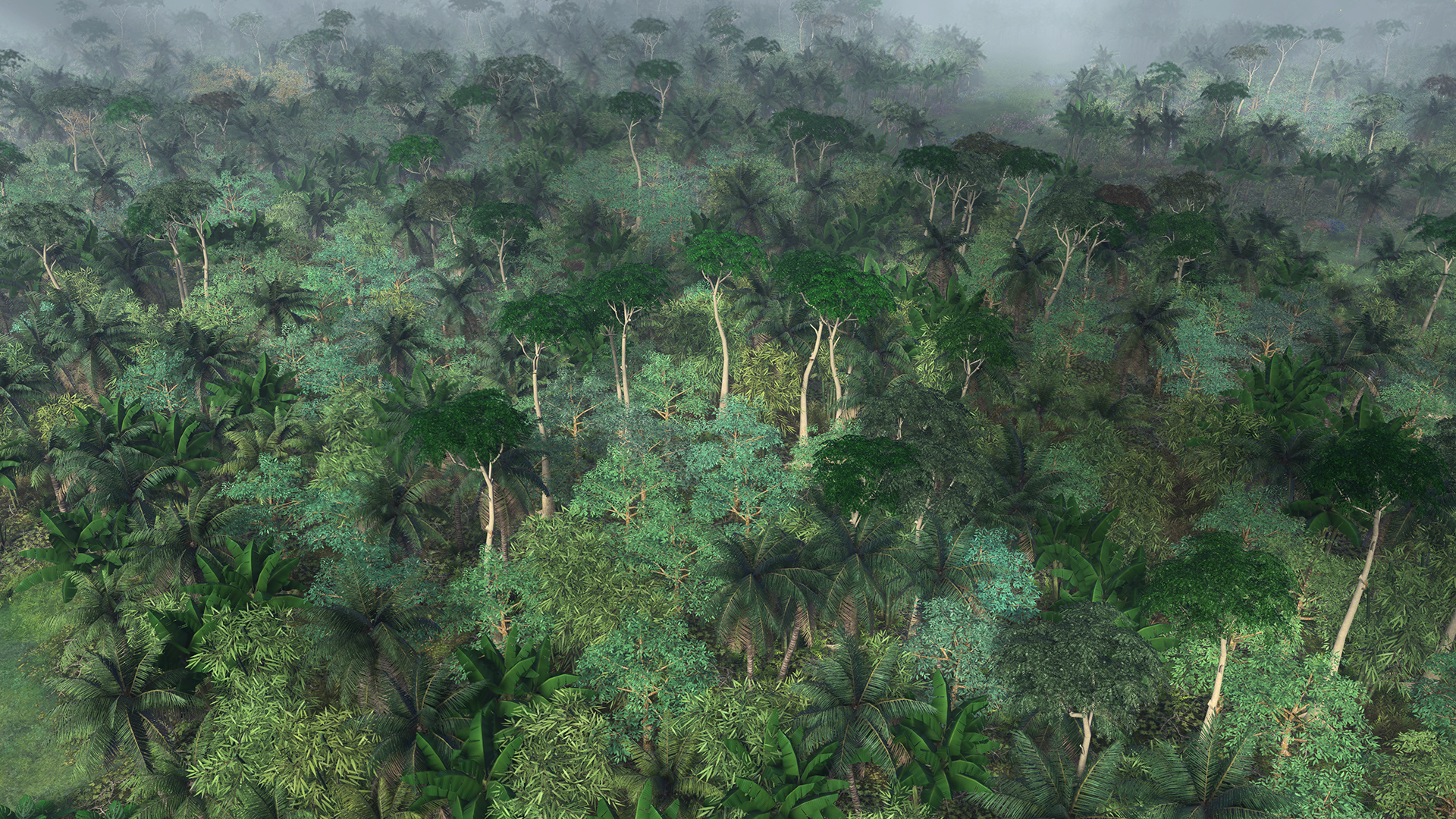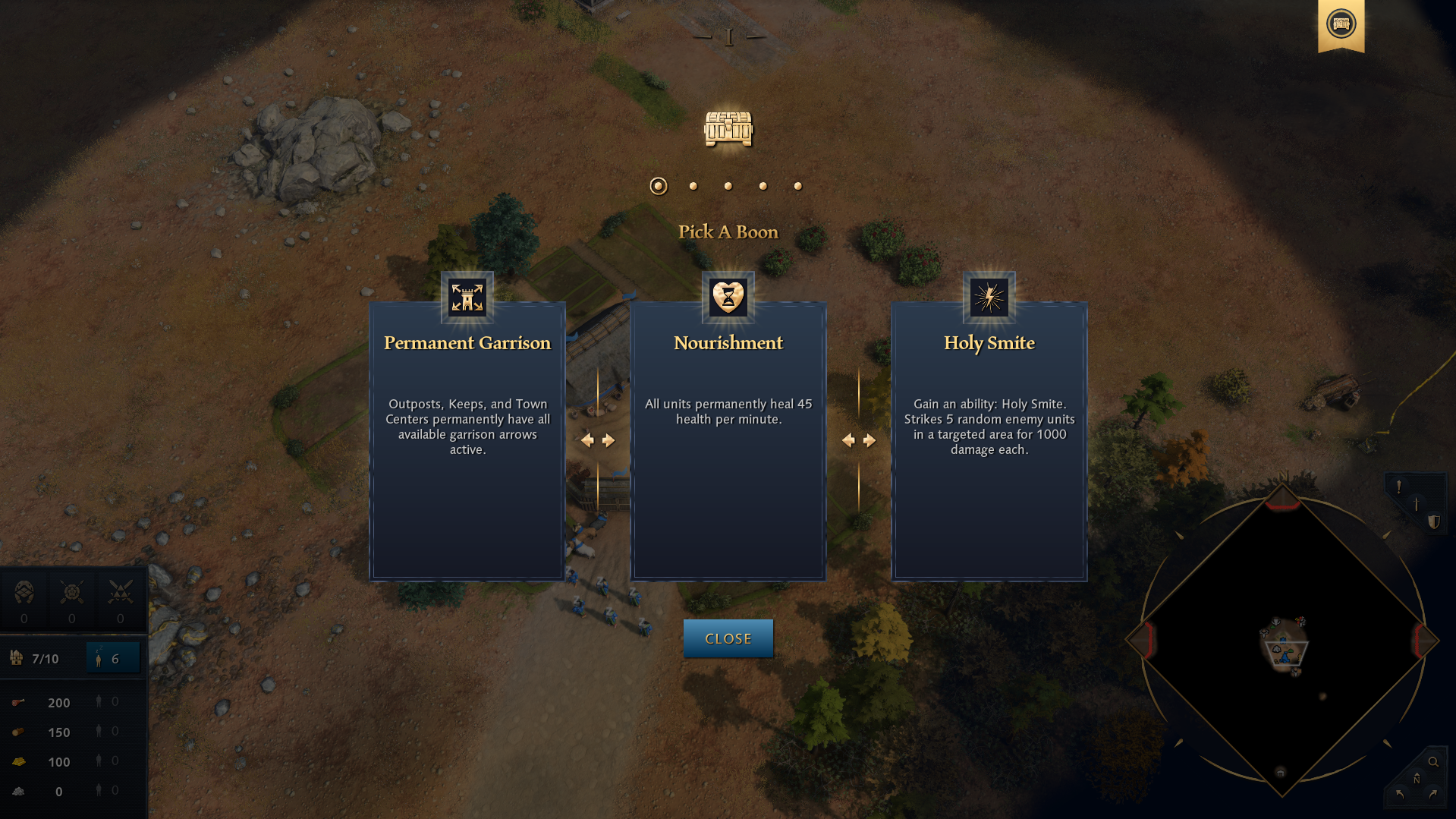
Cozy Crunch Patch Notes v1.0.6:
Fixed "Paddy" not showing up correctly
Follow my developer account to be notified when any of my new games release!

Cozy Crunch Patch Notes v1.0.6:
Fixed "Paddy" not showing up correctly
Follow my developer account to be notified when any of my new games release!

Survivors, the wait is over. Today marks a major milestone for everyone at iLLOGIKA and The Fun Pimps as 7 Days Blood Moons officially enters Early Access.
This project has been years in the making, shaped by passion, creativity, and a shared drive to deliver something special. Every challenge, test, and breakthrough led us here, and we’re proud to finally share it with you.
Early Access is just the beginning. The world of 7 Days Blood Moons will continue to grow and evolve with your help as we refine gameplay, add new content, and strengthen the survivor and zombie experience.
We can’t wait to see the moments you create, the strategies you discover, and the chaos that unfolds when the Blood Moon rises.
It’s time to gear up, build your defenses, and face the night.
The horde is waiting.
Watch the Early Access Launch Trailer below and join the fight today.
- 7 Days Blood Moons Dev Team

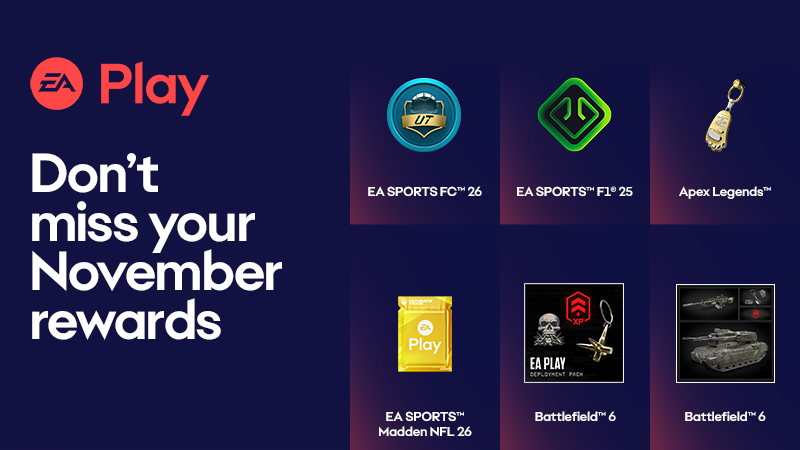
This November, access member rewards for Battlefield™ 6, Apex Legends™, and more, in addition to 10-hour trials of select sports titles.
Lock in to Battlefield 6, where you can pick up your EA Play Deployment Pack (if you haven't already) and EA Play Season 1 Pack — both come with cosmetic items & XP Boosts. Then, show off your good fortune in Apex Legends with the Lucky Footprint Weapon Charm.
Plus, claim rewards for a host of sports titles, including a Football Ultimate Team™ EA Play November Draft Token in EA SPORTS FC 26, a Madden Ultimate Team™ EA Play November Pack for Madden NFL 26, an EA Play Loyalist Ultimate Team™ November Pack for EA SPORTS™ College Football 26, and more.
And when it’s time to find your next favorite game, dive into all the game-winning, world-creating, galaxy-defining moments in The Play List. You can even try out select recent releases for up to 10 hours with no commitments. If you decide to buy, your progress carries over to the full game, ready for what’s next.
Plus, members score 10% off EA digital purchases, points packs, and DLC. Find out more about upcoming EA Play benefits at
https://store.steampowered.com/subscriptions/ea
or follow us on X (Twitter) and Instagram @eaplay.
*Conditions, limitations and exclusions apply. See
https://tos.ea.com/legalapp/eaplay/us/en/pc/
for details.

The new research screen is here! I still need to add research trees for 2 anomalies that are currently in the game, but now that I've finished this new UI, I can move on to focusing on core content once more, and also fixing all those terrible bugs. The game also needs a bit more optimisation work, which will take a lot of brainpower and draining evenings to crack. But I turned this game from a 5 fps lag machine to a 10 fps lag machine, and then to a 20fps lag machine. And if I learnt anything about the power of exponentials in school, it's one thing: most of the change comes right at the end when you least expect it. So hopefully that notion carries over to optimising the game further.
Anyway, here are some screenshots of what the new UI looks like.
Below is the first page you see when you press the research tab. Here, you select the anomaly you want to open the research tree of. The stats that get displayed here at a glance are how much "refinement" progress you have made; that is, how complete the research tree is. The small bar shows the progress on the current research project you are researching within the tree, just for convenience. I will have to make adjustments as more anomalies get added to the game; who knows how messy it will get.
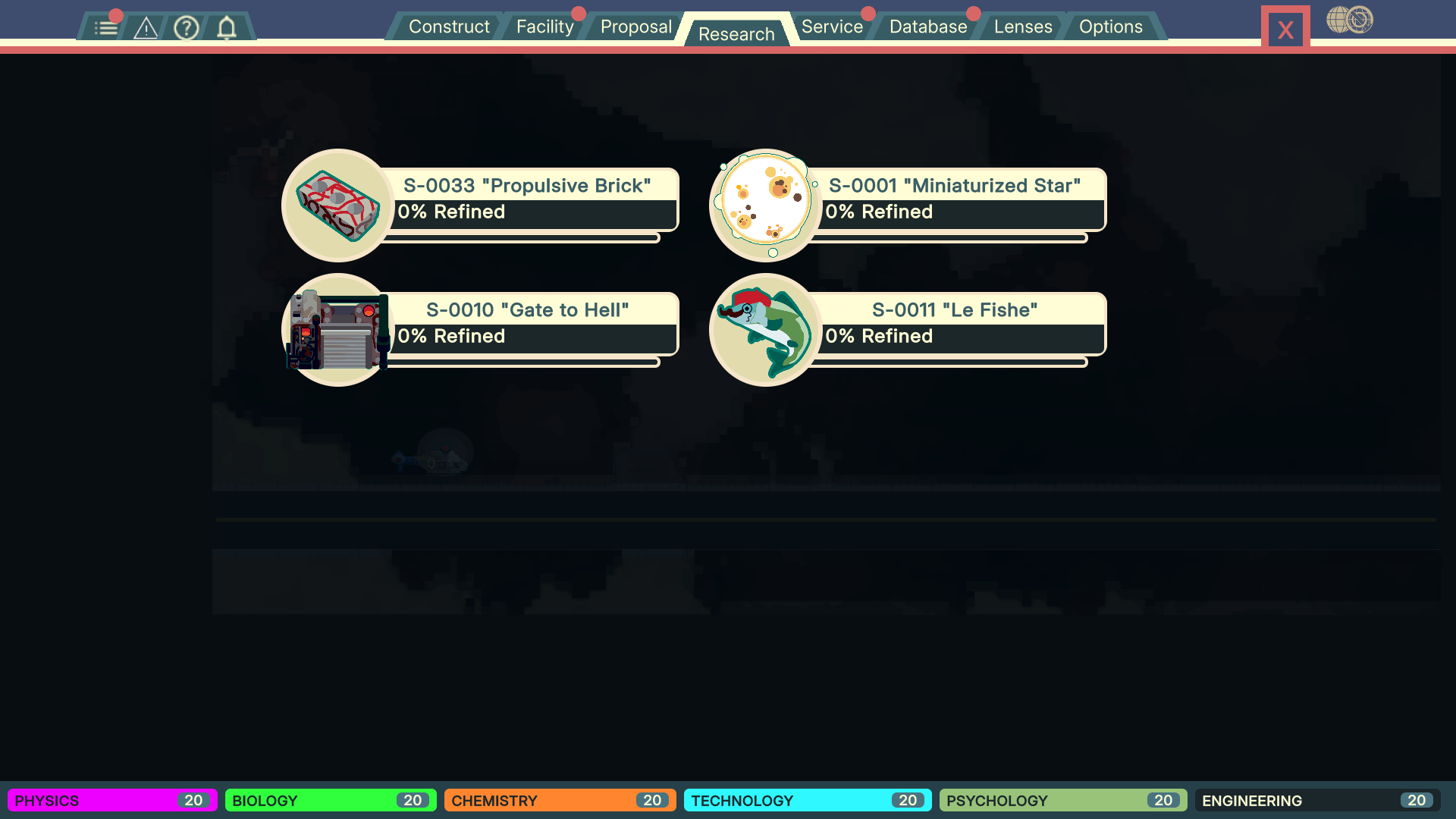
Here are some screenshots of the research trees themselves. Pretty close to the mockups, I'd say, other than no visible scrollbar at the bottom. I am too stupid to figure out how to make that work, so I just silently omitted it. But, in a stroke of genius, I realised the page was missing a back button! So I went and added that in.
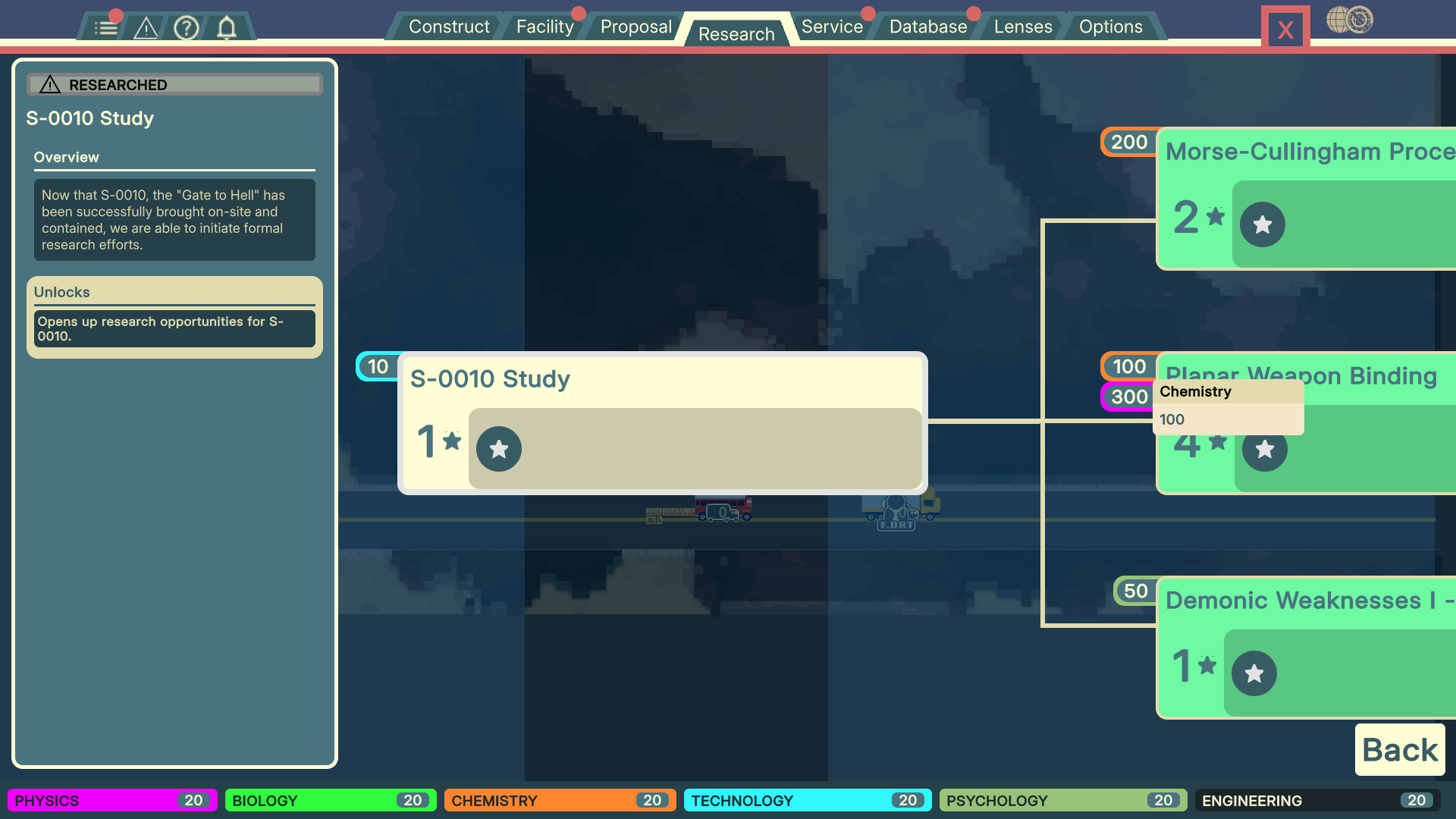
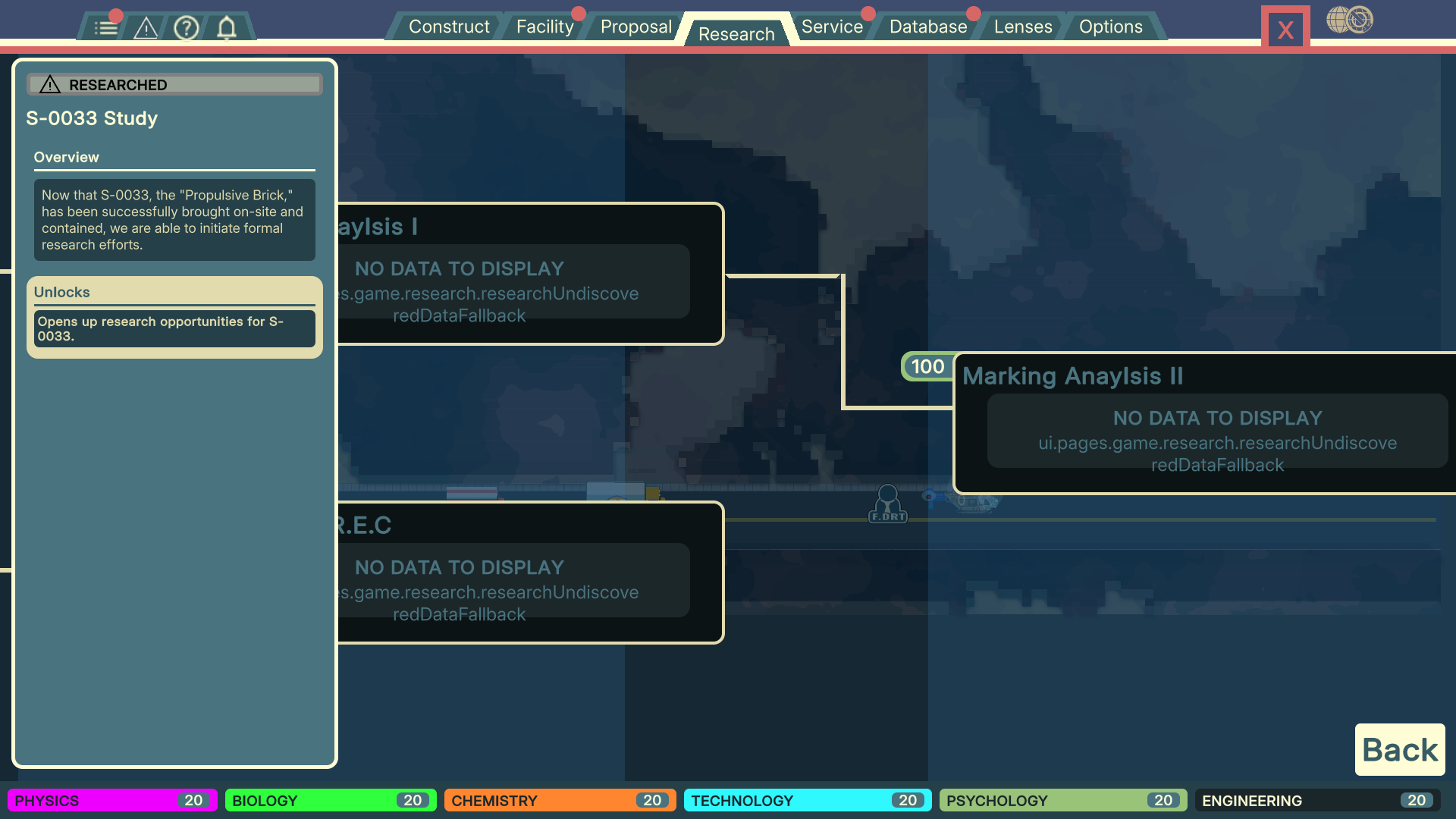
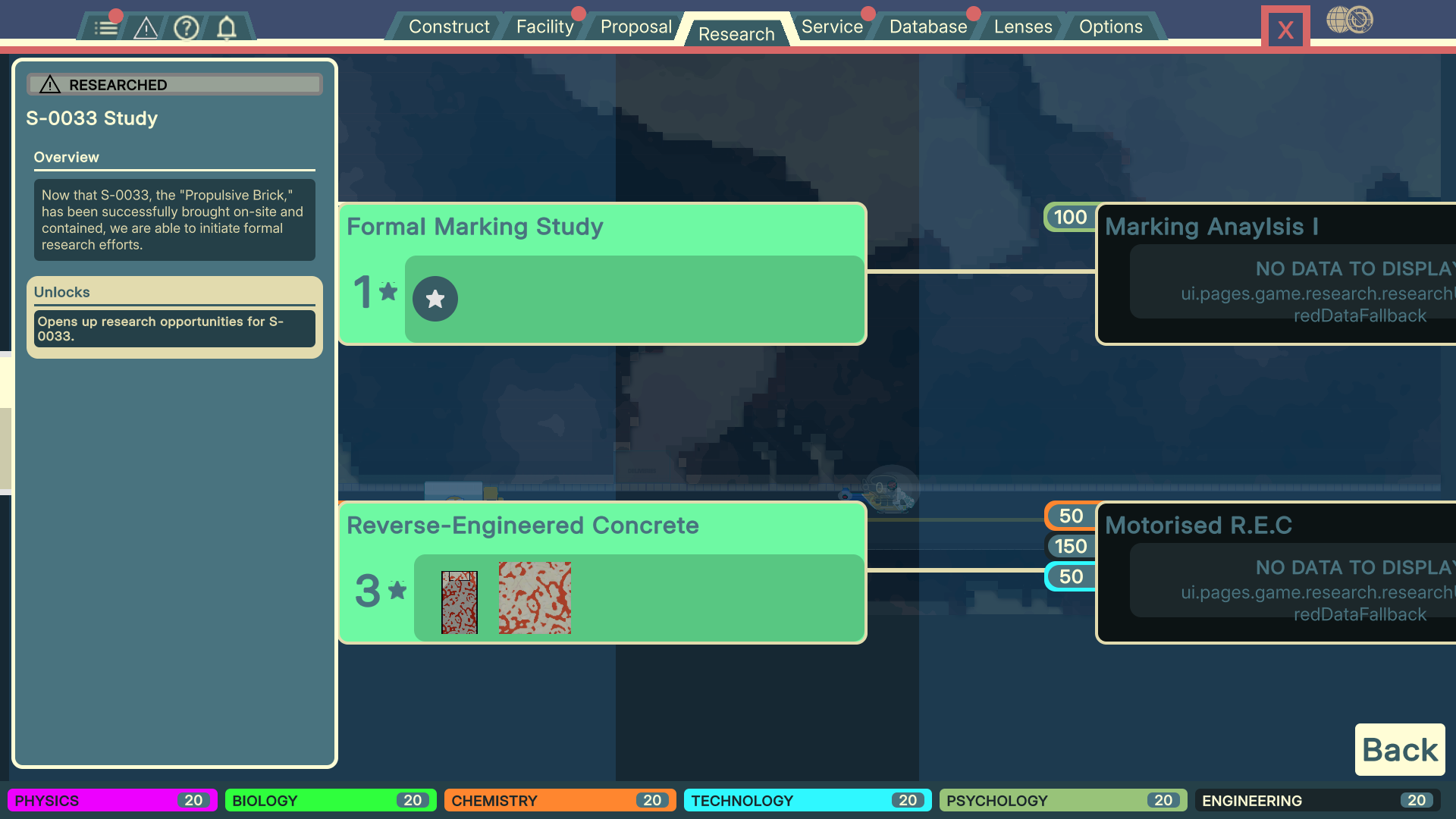
That's all I have to say about the UI. It honestly took a lot quicker than I thought to implement. Definitely a lot more usable than the previous one. I will miss the unique presentation of the old one greatly. The 3D architect paper aesthetic was really cool. I think I will reuse it for the world map, maybe? Hmmm.
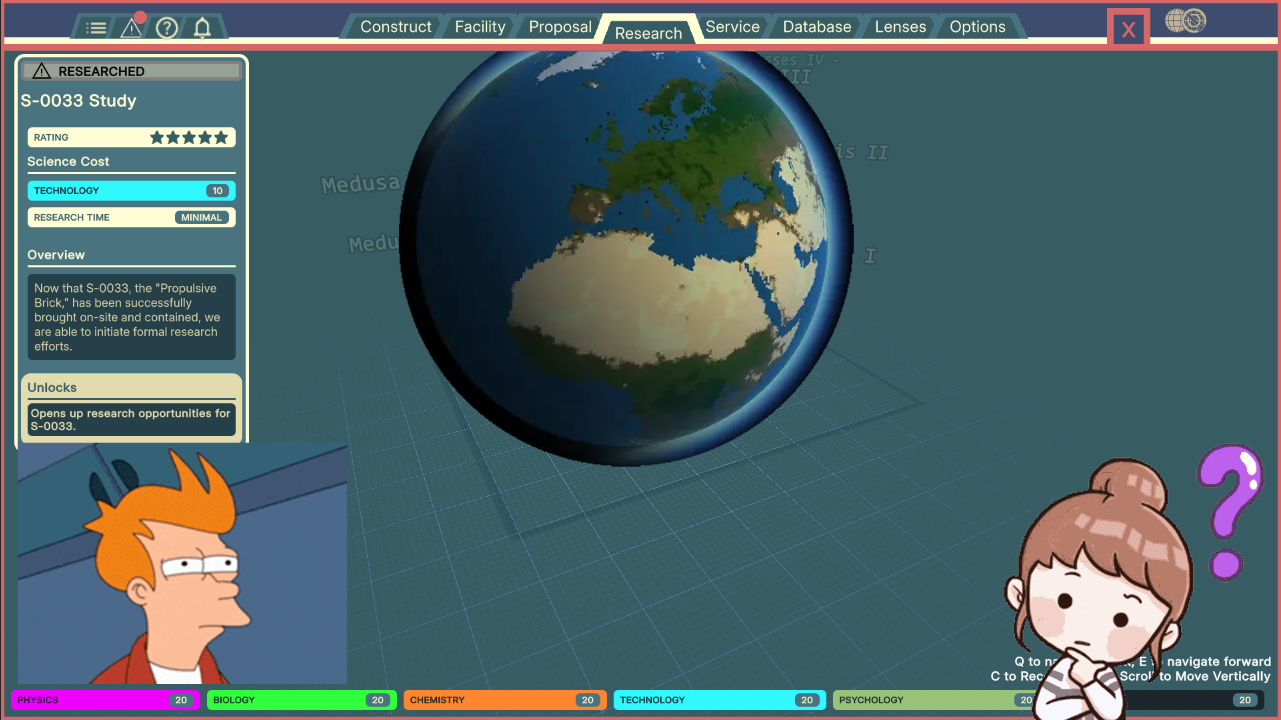
So what's next? Actually quite a big update, at least game design-wise.
A big problem I noticed with the game, and its something I noticed only after doing my own playthrough the game (I should really spend time to do that more often), is that every other pillar of the game (Containment & Profit) where able to be satisfactorily engaged with within an hour of playing the game, but the remaining pillar (Research), took hours of buidling, hiring, contract completion and overall setup to actually engage with. And that is a problem, not because it takes time but also because it places more burden of knowledge onto the player. The player needs to know how experiments work, how intern intake works, and how science and research work, all at once, to understand just how to complete their first research. This makes no sense! So what to do? How do we fix this problem?
It's quite simple, really. We need to do science. But science is too big. So what do we do? We shrink the science. Experiments, in the early game, will be condensed into small "Science Experiment Modules", which can be built inside containment cells as permanent fixtures. These modules can run experiments independently with a simple press of a button, wherein an intern or researcher will walk up to and activate the experiment, and the experiment will run for X amount of hours. After the experiment is done, it will spit out research points. Easy!
However, nothing easy comes for free. There is a chance that the experiment can fail. Much like proper big-scale experiments. If they fail, they may irritate the anomaly and cause an incident. Or the experiment module itself may malfunction and explode, or leak fluid or do something entirely unknown. And the biggest catch, every time you activate an experiment, there is a short startup phase of a few ticks where this risk is doubled. And if things go sour, you'll very likely lose the nugget you sent to activate it. Oops.
Though each time you activate and complete and experiment with a science module, it will improve a stat called its "rating". This stat will make it less prone to failures, but make its failures more catastrophic when they do occur. But every anomaly will have research nodes that can reduce experiment failures. And each module will be able to be upgraded every 10 rating levels to either: Reduce failure chance, or reduce failure magnitude, or speed up experiment time. The highest rating will unlock an upgrade for remote activation, allowing you to complete the manual activation process.
So there's a small progression I can add to individual modules. There are more interesting mechanics I can envision for this, like experiment modules being able to interact and complement each other. Maybe certain modules in combination with others can increase the science output of all of them.
The more I think about it, the more I see it might even just be able to completely replace the existing experiment system! But I think for now keeping both in the game is fine, I am apprehensive to making big design removals like that without seeing how it plays.
These were my ideas for the experiment modules to add for now.
Gray Goo Containment Unit,
Barostatic Thermometer,
Atmospheric Barometer,
Correlative Gravity Detector,
AE Rift Energy Anomalometer
Those who have played Kerbal Space Program might see the inspiration.
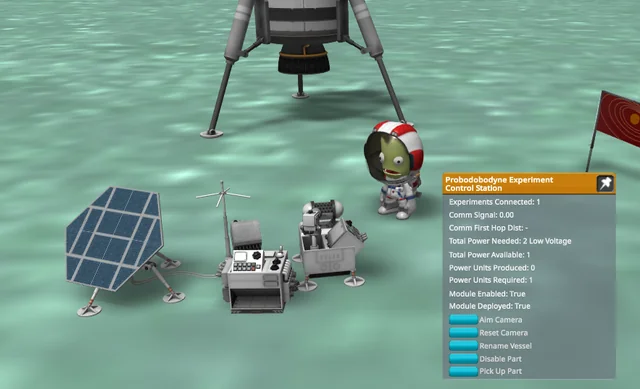
Each module will have slightly different stats, probably a linear increase in cost, experiment length, risk and science rewards. And each one will probably take up more "room space", making them harder to include in containment cells. And I may even add some "crowding" mechanic where science modules too close to each other get a negative debuff, and the more science points a module creates the bigger this crowding radius is. Maybe I'll call it "Instrument Interference".
I think there's a lot of interesting stuff with such a simple system. Thanks, Kerbal Space Program!
Hopefully, that gives a good idea of where the game is headed. The basics of the experiment system will make their way into the next patch, and hopefully a few bug patches and optimisations too. Depends on how much time adding the science modules takes. There are also some optimisation issues (possibly only in build?) for certain hardware, which I need to address.
I have been slowed down by various life stuff, so the development pace will be quite malaise for a few weeks. But I'll try my best to get patches out every 1 or 2 days. But if there are a few days where I am MIA, then don't be surprised :/
Anyway, ending on a light note. Please try and break the research page!
Overhauled Research screen
Fixed bug where builders would fall when climbing up ladders
All anomaly files are viewable from the database screen

Hey everyone!
I’m Cuman Legacy, the solo developer behind Legends of Cumans — a puzzle-driven, comedy-filled RPG where you play as the last surviving Elf.
In this first developer update, I wanted to show one of the most unique parts of the game — the time-based battle system.
Unlike most RPGs that use turn-based combat, every fight in Legends of Cumans lasts a set number of seconds. Each Legend has their own stat card that shows their attack speed, how much HP they lose during a battle, and how many Woop Potato Chips are needed to recover HP.
Watch the short gameplay video here:
https://www.youtube.com/watch?v=AMV1zbODJPkEach Legend fights differently — some are fast but lose more HP per enemy, while others are slower but more resistant.
You’ll need to manage your healing items (like Woop Potato Chips – Hot Chili) wisely to survive the waves of White Creatures.
For example:
Flint Grotovsky fights for 14 seconds, losing 2 HP per enemy, and Woop Potato Chip recovers +1 HP. Victor Mandragor fights for 12 seconds, losing 1 HP, and Woop Potato Chips – Hot Chili recover +1 HP. Rowan Dravik fights for 21 seconds, losing 3 HP, and Woop Potato Chips – Dormin Cheese recover +2 HP.
This battle system is designed to keep every fight fresh, challenging, and just a bit absurd — exactly in the spirit of Legends of Cumans.
Thank you all for following this journey! More updates are coming soon — including new puzzles, characters, and strange places to explore.
Stay tuned,
Cuman Legacy
Creator of Legends of Cumans

Broilers Soundtrack is Now Streaming Everywhere!
The official Broilers soundtrack is finally out on all major streaming platforms. You can now listen to the full album on Spotify, Apple Music, YouTube Music, and more.
Stream it now and relive the experience wherever you are.
We're working to get it onto the Steam store next!


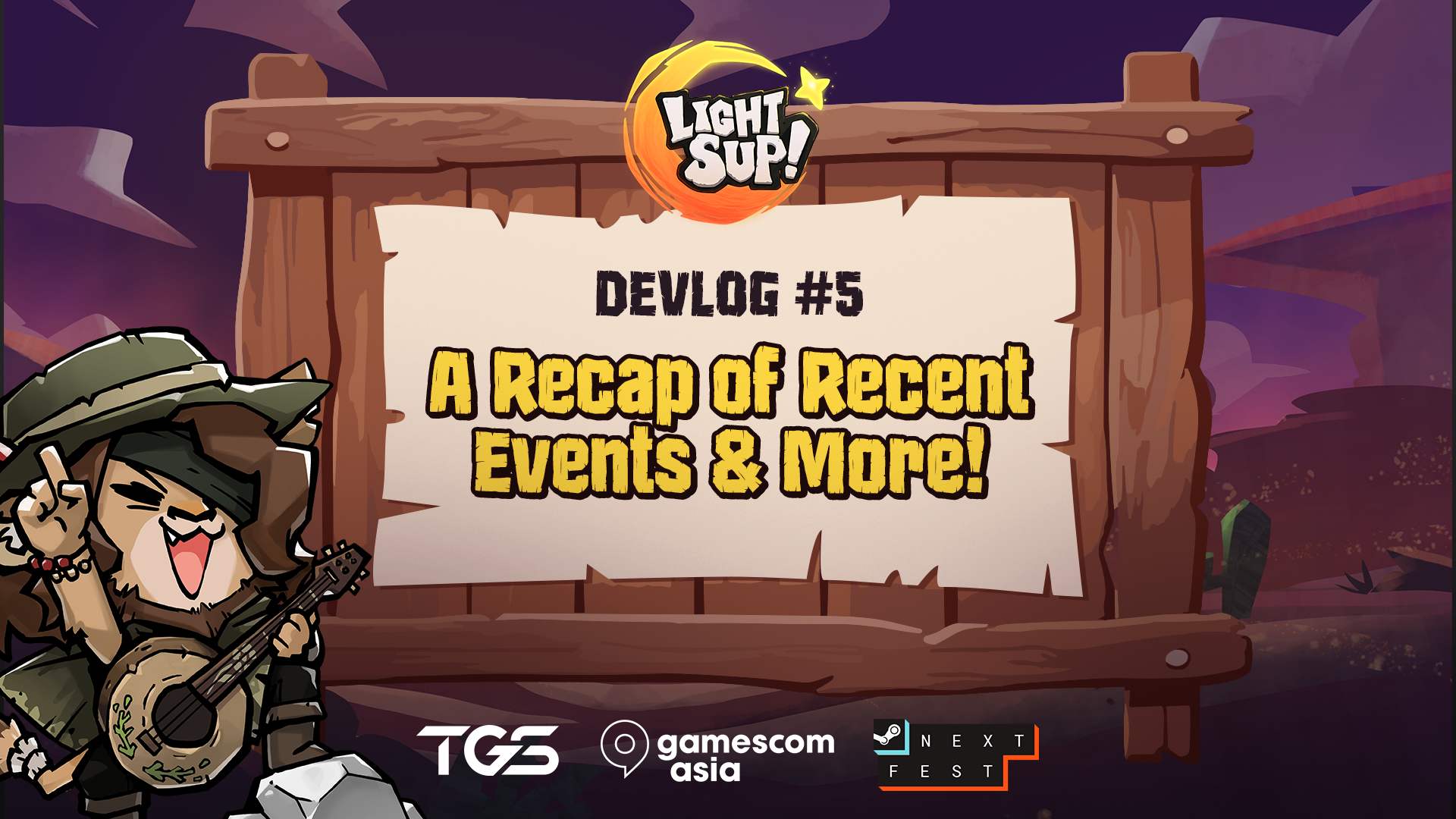
🌟 Hello, Lightseekers! Our Journey Takes Flight!
Get ready, everyone! We got a lot of energy and excited to take you behind the scenes of what has been a truly whirlwind adventure for our little indie team. This devlog is all about the significant leaps we've taken recently, from interacting with players in Japan and Thailand to expanding into the digital world of Steam.
These events weren't just fun; they were crucial for a small team like ours. Think of them as us leveling up our developer stats!
Without further ado, let's dive right in!
Stepping onto the floor at TGS was a dream come true! This year was a landmark moment for us. With over 200,000 visitors pouring in, we knew it was going to be big—but we were blown away by the reality!
This year, we had our biggest booth ever, and we owe a massive shout-out to our awesome publisher, Red Dunes Games, for their support! They helped us create some seriously cool gifts for the fans who came to enjoy the new build. Thank you for making us look so good!
B2B vs. Public Days: The first two days were our B2B sessions, which our small team could mostly handle. But once those doors opened for the public... it was CRAZY! People just kept pouring in, eager to try the game.
Real-Time Reactions: We loved watching your faces light up (and sometimes scrunch up in concentration!) as you played the demo. Getting that instant, honest feedback was invaluable. The great reactions and genuine enthusiasm proved we're on the right track!
Global Connection: We took the chance to run a survey to understand what the Japanese market truly loves. Trying to communicate with our passionate players was a hilarious adventure in gestures and pointing—but as we all know, gaming is a universal language, right? There’s truly nothing quite like seeing they play our game in person!
"While the wishlist number was modest, the experience of having our entire team understand what players truly want and how they interact with our game is priceless. This qualitative data is going to make the final game infinitely better."
We realized that even if a player doesn't understand the text, the storytelling needs to shine through the gameplay, art, and emotion. We are now committed to capturing the player's interest more effectively by prioritizing a clearer and more impactful visual/emotional narrative.
Observing all the different reactions gave us a better compass for player needs. We know exactly which moments in the game are naturally fun and how to guide players to those moments faster.
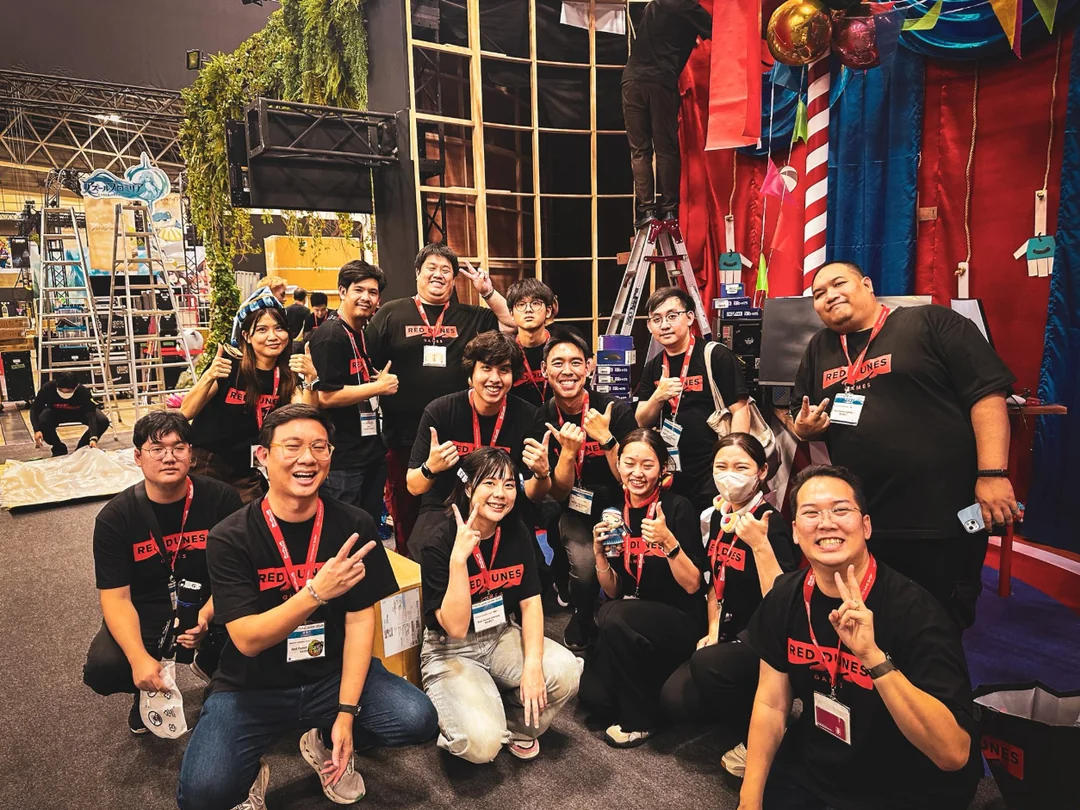
Steam Next Fest is the single shot an indie game gets on its path to launch, and it just so happened to overlap directly with our Gamescom Asia trip! Talk about a logistical boss fight!
The internal team strategy session was intense: we had to execute the "Great Split"—planning exactly who would man the physical booth in Bangkok and who would lead the charge in the digital trenches of Steam. It was a stressful sprint, but we are thrilled and a little tired, since we can only do this once, we went all-in to maximize our exposure and traction
We committed to live-streaming our game throughout the entire event. This ensured we were constantly popping up on the Next Fest pages, giving players a chance to see the gameplay, ask questions in real-time, and feel connected to the developers.
Our team worked hard to prepare the best possible demo experience, clocking in at around 2-3 hours of gameplay. This length was strategic: it allowed you to fully grasp the:
The Intro & Atmosphere: Setting the mood and look-and-feel.
Core Concept & Mechanic: Giving you a solid understanding of what makes LightSup! unique.
Overlapping a physical event with the one-time Next Fest was a huge risk, but it paid off in visibility and critical mass. It confirmed that no matter how busy we are, we have to keep that direct line open to you, the players, through consistent streaming and a high-quality, memorable demo.
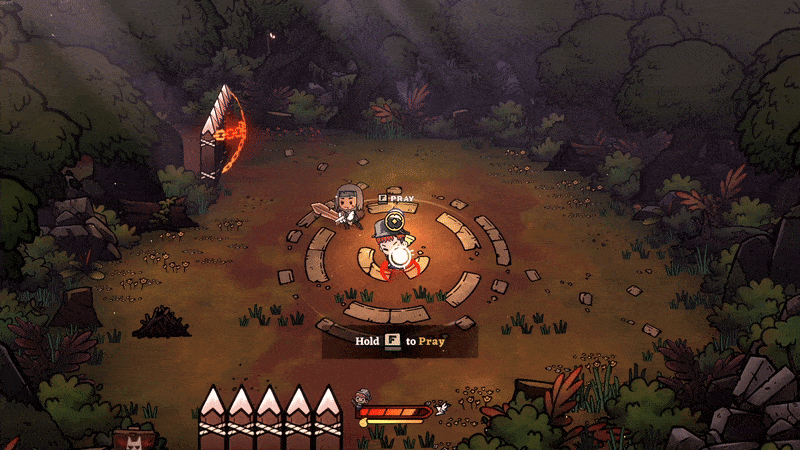
The end of the year turned into a massive balancing act! Since Gamescom Asia overlapped with Steam Next Fest, we had to pull a classic team move: we split up! Half the team managed the online event, while the other half headed to the convention floor.
We brought tons of fun giveaways for all the players. What really surprised us was how much everyone loved them! You guys really connect with the art style of LightSup!, and seeing your genuine excitement when you got a prize made us so happy and cemented your place in the world of our game.
We also made sure to improve the build from the Tokyo Game Show in September. We wanted the Gamescom version to be even easier to jump into, and for those who couldn't make it, you can now enjoy the same great improvements in the new demo available on Steam!
The build we brought to Gamescom was a hit, which made us so satisfied and happy! We loved watching everyone play. It's fascinating how different groups approach the game—for example, we noticed that Thai players have a slightly different play style compared to players from other countries, which is great insight!
We collected some truly valuable feedback, and here’s the best part: we loved it so much that we already implemented a key change this month (November) based on it! We won't spoil it, but you'll have to jump into the game to find out what it is! 😉
One major piece of feedback we got was about the pacing:
"The text speed on the story animations is too fast! We can't keep up and get lost in the story." that's a super important note, and we are working to make sure everyone can enjoy the narrative at their own pace!
This year was special because it was the first time Gamescom Asia was held right here in Bangkok, Thailand. We initially thought the crowd would be mostly Thai, but we were wonderfully wrong! About 40% of the visitors were foreigners!
This gave us fantastic exposure and revealed a few key things:
We heard from many Thai players who love the game and are passionately asking for localization! We hear you loud and clear!
Our game got a lot more eyeballs on it globally. We even got an interview from a Japanese press member who just walked up to our booth! He told us the art style was incredibly attractive and wanted to know everything about LightSup!
Moments like that really fuel us and prove we're heading in the right direction!
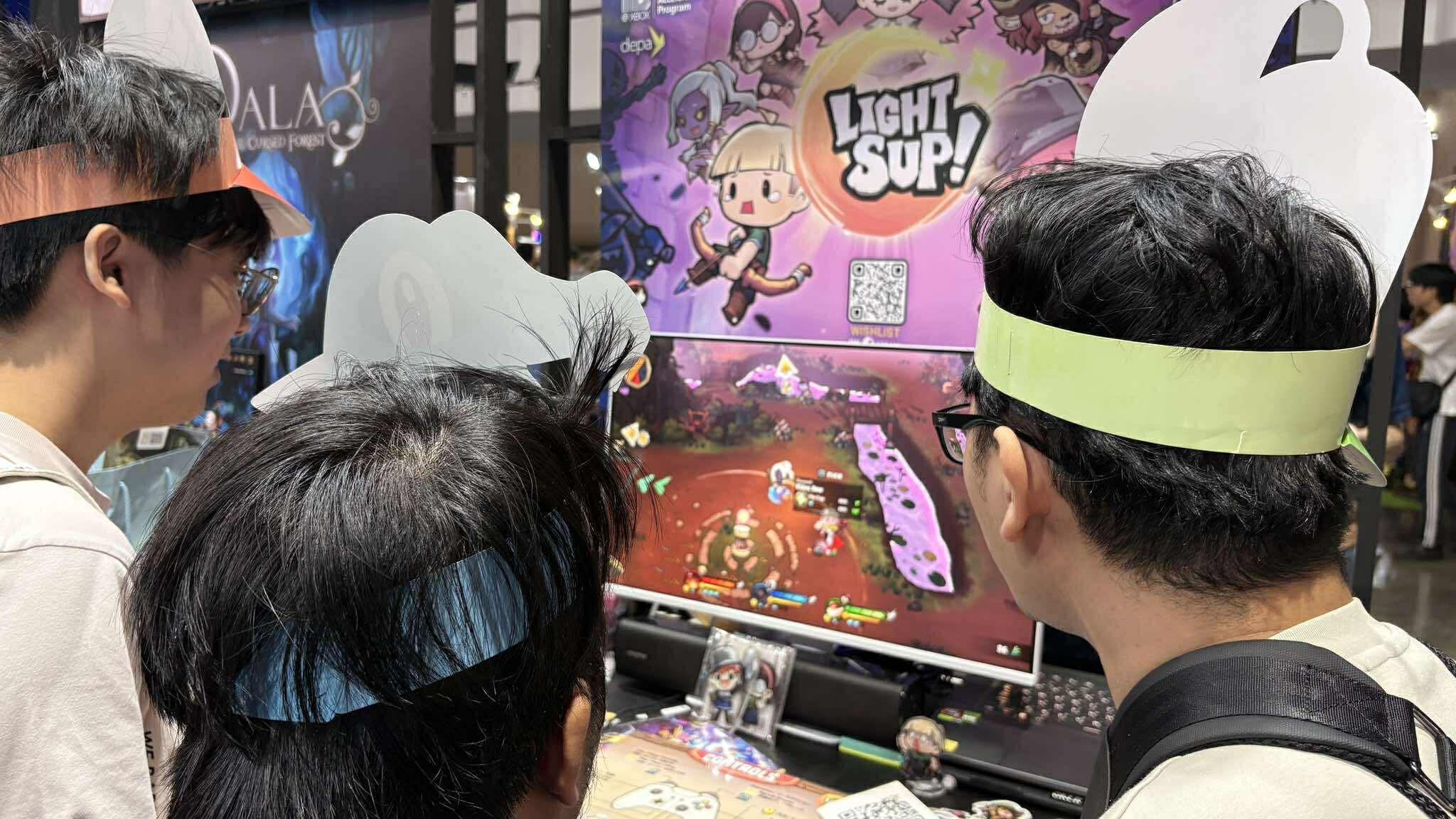
We are participating in Southeast Asia Games Onward 2025! Check us out from December 9th to December 20th, and don't forget to wishlist the game while you are at it!
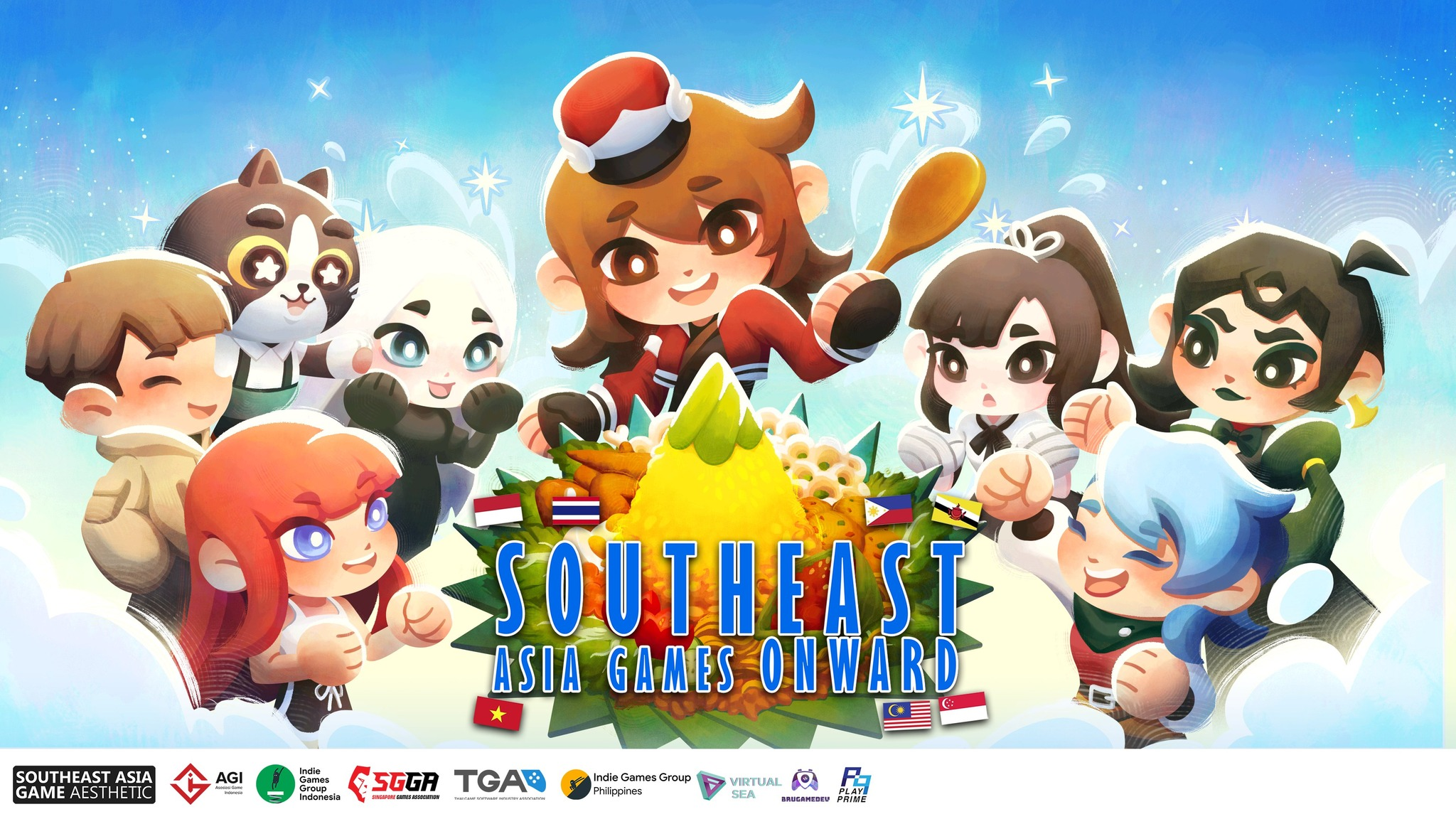
A huge, THANK YOU to everyone who participated in Steam Next Fest, visited us at Gamescom Asia, gave us feedback, and shared a good time with the Bugblio Studio team! Your passion keeps the lights on—literally!
Stay tuned for more updates!
The Bugblio Studio Team!

We have decided to remove Mac support from Usurp given certain problems we have encountered in regards to networking and Apple permissions. We understand that this might be an inconvenience to some and we appreciate all the support you have given us through this development process. Anyone who has purchased a Mac version of the game will be refunded. Going forward, Usurp will be only available on Windows.
-Mikey, Lead Designer

